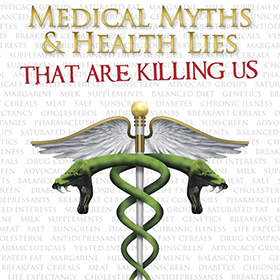
Unfortunately illness has become one of the most profitable businesses of the 21st century. Too many big companies earn too much money on chronic illness to have any interest in disease prevention. Profit is made from treating an illness that is not cured. In Australia, the pharmaceutical benefits scheme has risen by 10% each year since its inception, with no decrease in chronic illness. In fact chronic illness continues to increase. This is not sustainable and, worse, not working and no we are not living longer (see the chapter later in the text) but we are a lot sicker at every age. To continue this is best described as insanity. The best example is that the U.S. ranks 46th in the world for life expectancy and health and has the highest per capita health expenditure in the world. The more they spend on drugs and operations the sicker they become.
The whole system is flawed, starting from the philosophy of modern drug use to research right through to regulation and administering drugs. The pharmaceutical industry now defines much of the medical profession’s practice. We have a compromised medical research and academic community that has become dependent on industry money for its existence.
The pharmaceutical and big food industries’ financial and marketing influence extends to federal regulatory agencies, professional organisations, medical journals, continuing medical education, scientific researchers, media experts and even consumer advocacy organisations. The power exercised by the pharmaceutical industry has created conflicts of interest that have undermined the credibility of medical and health research and education. As a simple example, a quick visit to any medical journal website will more than likely come up with an advertisement for a drug. This excessive power has, in fact, undermined ethics. It has even undermined the credibility of the front line GPs who see the patients. As a whole, GPs have become the retail arm of the pharmaceutical industry.